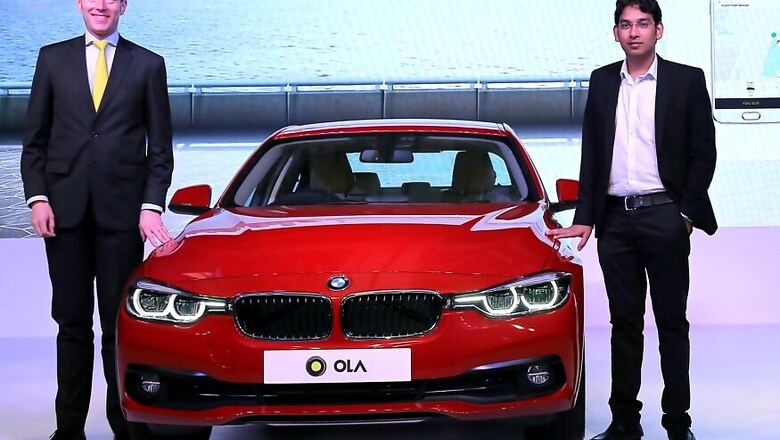
views
From Ford and GM to BMW and VW, 2016 has been as much about trying to solve consumers' mobility issues as it has been about trying to sell people new cars. And as technological innovations continue to come thick and fast and urban areas become even more crowded, this could well prove to be the shape of automotive things to come with car companies reinventing themselves as transport service providers.
In September, when Ford set out its future business plan, President and CEO, Mark Fields said: "The world is moving from simply owning vehicles to owning and sharing them. That's why we are expanding to sell more vehicles and provide transportation services at the same time."
And the Blue Oval is by no means alone. From Mercedes-Benz and BMW to Audi and Toyota, 2016 signaled a concerted effort to move simply from building cars to solving consumers' mobility issues.
In October international Daimler-owned car-sharing company car2go celebrated attracting its 2 millionth member, eight years after its launch, and GM has spent most of the past 12 months investing in existing ride sharing services like Lyft or buying up the assets of failed ventures.
Yet as a percentage of the average person's salary a new car has never been cheaper to own, so why are the world's biggest carmakers looking to change their business model?
The simple answer, according to Bosch, is people living in urban environments are falling out of love with the idea of car-ownership. Of being stuck in traffic, of never being able to find a parking space plus the fact that public transport systems are increasingly efficient and connected -- planning a route is now no more difficult than launching a smartphone app.
And, as a result "The car as we know it will soon be history," said Bosch CEO Dr. Volkmar Denner. "Today you use the internet to book a hotel room; in the future you'll arrange your mobility online as well."
And if carmakers don't move quickly to address this change in behavior then any number of tech startups could instead. "Cities globally are dealing with increased congestion, a growing middle class and environmental issues -- all of which can be alleviated by developing mobility solutions fine-tuned to the unique challenges of each location," said Jim Hackett, chairman, Ford Smart Mobility LLC.
Gateway to more services
Over the next five years, the global market for connected mobility is expected to grow by 25% annually. With every year that passes the technology underpinning it will get more powerful, more intuitive and more connected. This in turn will open the doors to even more potential services.
Take parcel deliveries for instance. Smart and Volvo are both already testing services where couriers can deliver a package to a person's car, using their phone to unlock the vehicle and send a ‘package arrived' message. "Alongside the home and the office, the car will become the third living environment," explains Denner.
The car is becoming a major hub within the internet of things: BMWs can now communicate with Amazon's Echo home assistant and any Mercedes with the right options can remotely tell a Nest thermostat that its owner's stuck in traffic so the heating doesn't need to come on yet.
And as they connect to the IoT, they will also connect with the wider transport infrastructure, public and private. "In a few years, mobility will be seamlessly connected," said Denner.
And at that point, the concept of a privately owned car could be usurped by the idea of a publicly shared vehicle that's yours when you need it.



















Comments
0 comment